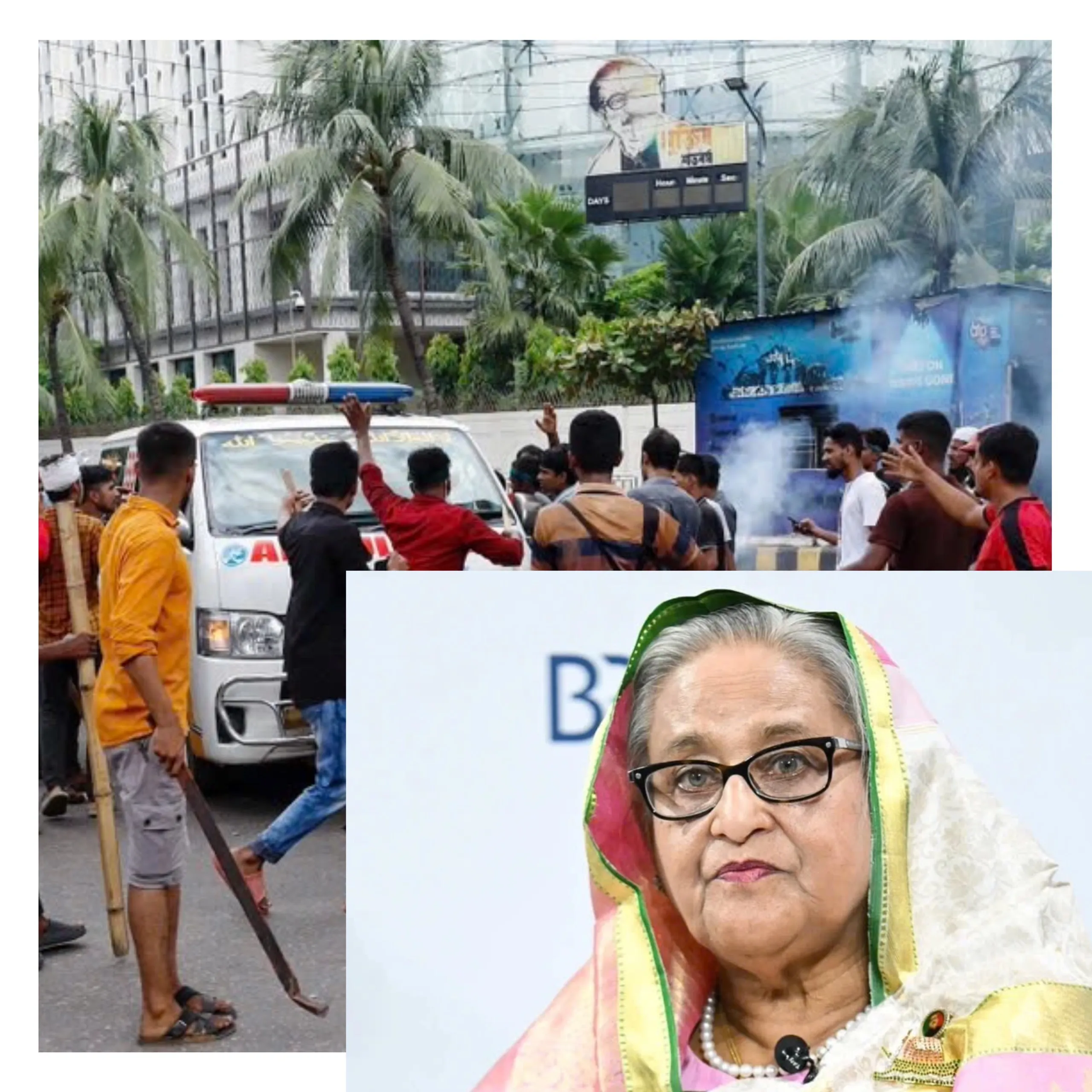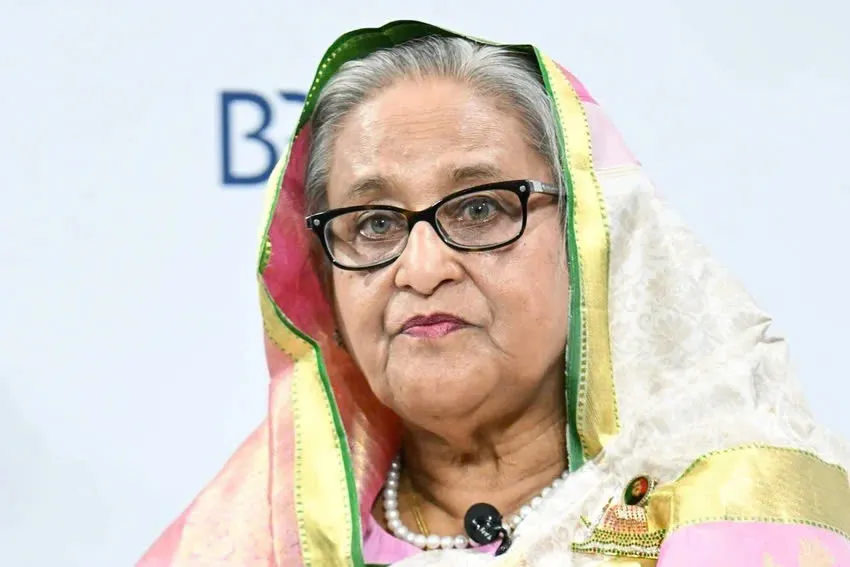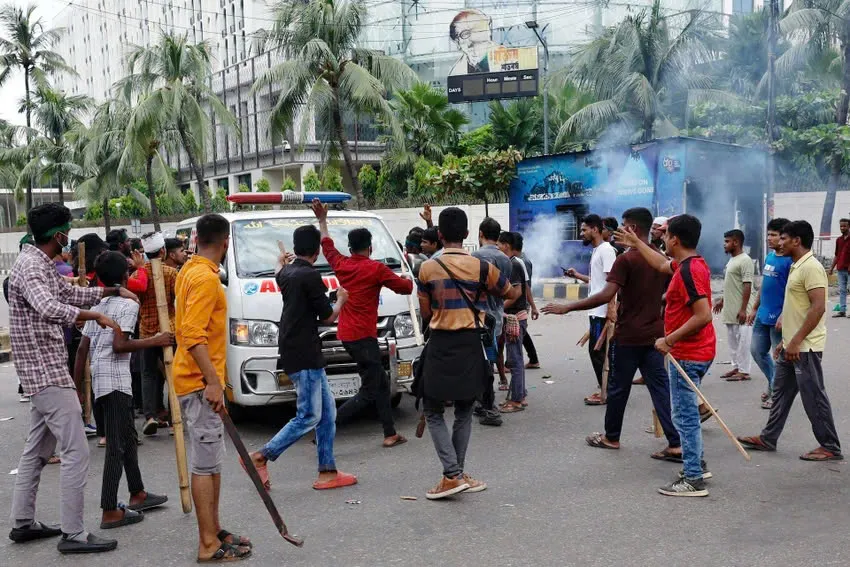
Bangladesh Army Chief Waker-Uz-Zama has announced that Prime Minister Sheikh Hasina has decided to resign amid increasingly violent protests in Bangladesh. The decision comes amid a tense political situation, reflecting the instability the country is facing.

Bangladesh Prime Minister Sheikh Hasina. Photo: DPA
In a televised address on the afternoon of August 5, Bangladesh Army Chief Waker-Uz-Zama announced that Prime Minister Sheikh Hasina has officially resigned, according to Prothom Alo.
He stressed that a political transition is underway and an interim government will be formed soon, opening a new chapter for the country in the current context.
Earlier in the day, local media reported that Hasina had boarded a helicopter to leave the country for a “safe haven” amid violent protests in Bangladesh.
Prothom Alo reported that a military helicopter carrying Hasina took off from Ganabhaban at around 2:30 p.m. on August 5. Some sources said the helicopter was carrying Hasina to India.
An aide to Hasina told Al Jazeera that the Bangladeshi leader boarded a military helicopter after a crowd defied a nationwide curfew to storm the prime minister’s residence in Dhaka.
Bangladesh television channels aired shocking images showing scores of protesters storming the prime minister’s residence, overturning furniture, smashing windows and carrying away books and other items. The chaotic scenes reflected the anger and frustration of the people amid rising political tensions.
Prothom Alo said at least 95 people were killed killed and hundreds injured in violent clashes between protesters and police across Bangladesh over the weekend alone.
Violent protests have been raging in Bangladesh since last month, led by student groups over state employment quotas.

Protesters in Bangladesh on August 4. Photo: REUTERS
Violent protests in Bangladesh escalated last week as tens of thousands took to the streets to demand Prime Minister Hasina’s resignation. They criticized the government for using excessive force to suppress the protests. In the face of this tension, police were forced to use tear gas and rubber bullets to disperse the crowds, creating a chaotic atmosphere on the streets.
According to Reuters, the Bangladeshi government had to impose an indefinite curfew nationwide starting at 6 p.m. on August 4. High-speed internet services were also cut off and social media platforms such as Facebook and WhatsApp are currently unavailable in Bangladesh.



